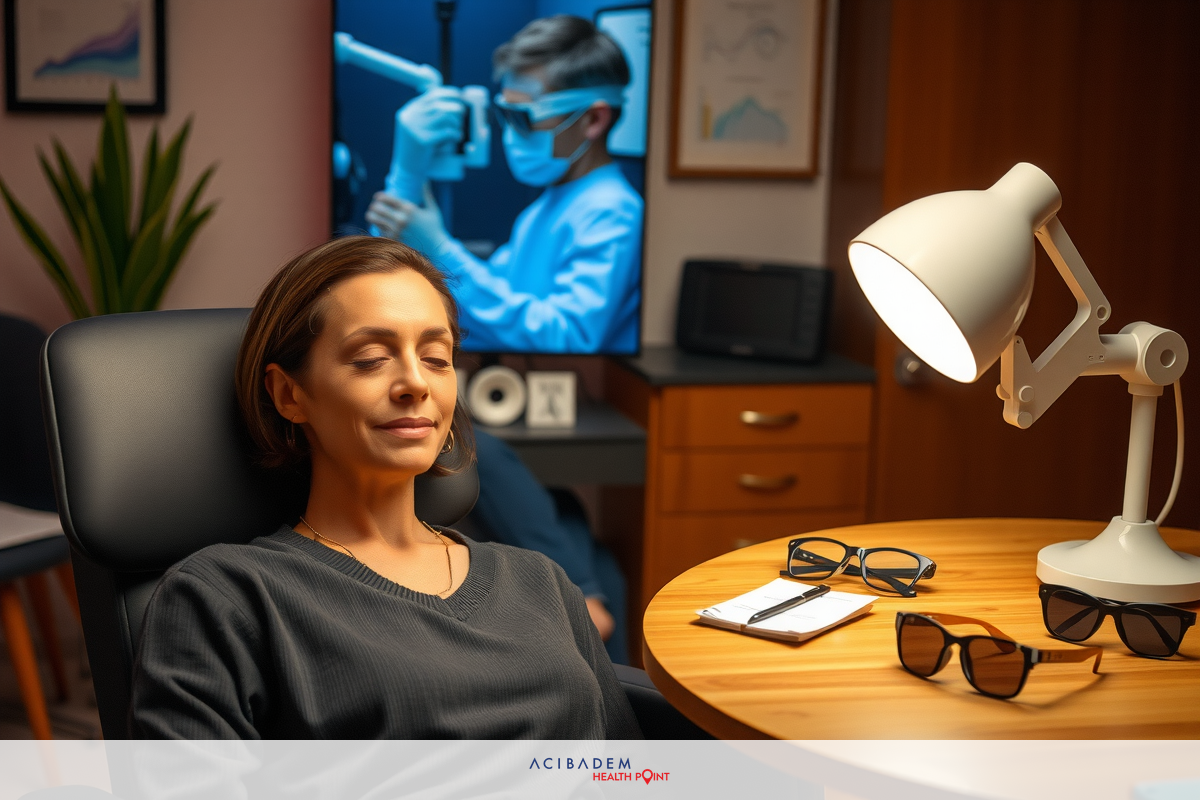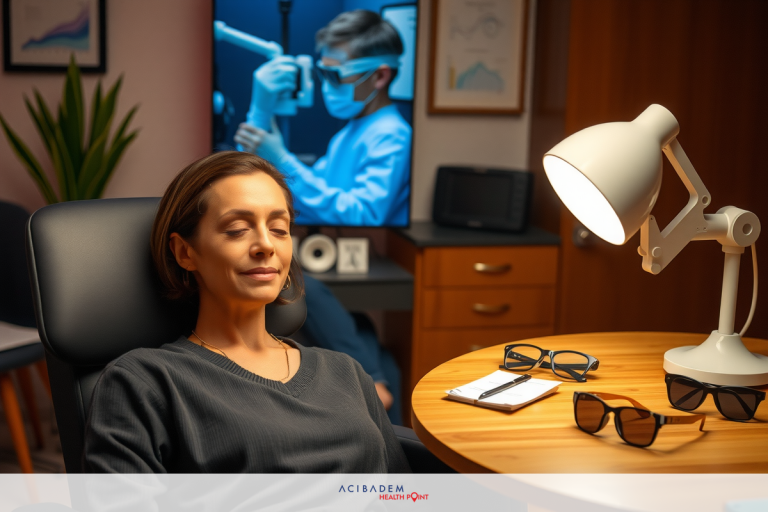Does LASIK Prevent Eyes from Getting Worse?
Does LASIK Prevent Eyes from Getting Worse? LASIK, an advanced eye treatment, holds the promise of improved vision. It can potentially address refractive errors that cause blurred eyesight. Yet questions linger about its capability to halt or slow down the degradation of visual acuity over time. Can it really keep our eyes from getting worse? This query calls for a detailed examination.
The mechanics of LASIK operation are fascinating in their precision and effectiveness. Correcting distortions in how incoming light is processed by our eyes opens up new possibilities for sharper sight. But does this intervention have any bearing on the progressive weakening of vision caused by various factors such as aging or disease? Let’s consider these issues further.
There is also curiosity about how successful LASIK actually is when we sift through statistics and studies documenting its outcomes. Success rates offer insights into whether this technique truly delivers what it promises – vision free from glasses or contact lenses! The evidence provides some intriguing answers that might surprise you.
How Does LASIK Work?
LASIK, short for Laser-Assisted In Situ Keratomileusis, is a surgical procedure designed to correct refractive errors of the eye. These errors – myopia (nearsightedness), hyperopia (farsightedness), and astigmatism – result from abnormalities in the cornea’s shape that impede light focusing on the retina. The process commences with creating a thin flap on the cornea’s surface using either a microkeratome blade or femtosecond laser.
Post-laser treatment sees the repositioning of the previously created flap back onto its original location where it self-adheres naturally without requiring stitches or bandages. This modified curvature now efficiently focuses incoming light directly onto retina leading to improved vision post-recovery. It’s crucial to note that LASIK doesn’t prevent eyes from naturally worsening due to age or other conditions; it successfully corrects existing refractive errors at time of surgery thereby enhancing visual acuity.
The success rates associated with LASIK are notably high considering that majority patients experience drastic improvement in their sight following surgery often eliminating reliance on eyeglasses or contact lenses altogether! Yet like any medical intervention, potential risks exist alongside benefits making informed decision-making imperative prior undergoing such procedures.
Can LASIK Prevent Eyes from Getting Worse?
A common question in the minds of potential patients is whether LASIK can prevent further deterioration of their eyesight. However, it’s essential to clarify that while LASIK corrects current refractive errors contributing to blurry vision, it does not inherently halt or slow down the natural progression of vision loss associated with age or certain diseases.
LASIK primarily addresses issues related to the shape and function of your cornea – the clear front part of your eye. By reshaping this area, light entering your eyes focuses correctly onto your retina, improving visual clarity significantly for many people. Yet conditions like presbyopia (age-related long-sightedness) and cataracts which are prevalent as we age aren’t prevented through this procedure.
Many often wonder if getting multiple rounds of laser treatment could keep up with these changes thereby maintaining perfect sight indefinitely? This might seem plausible theoretically yet practical considerations render it unlikely due to cumulative risks involved alongside declining benefits from repeated surgeries on a
progressively thinning cornea! Thus while an initial round offers dramatic improvement subsequent ones might

yield diminishing returns apart from increasing complications risk making such approach undesirable medically speaking.
Although LASIK effectively rectifies existing refractive problems it doesn’t stop future ones linked with aging nor does it make one immune against other unrelated ocular conditions hence regular eye check-ups remain vital even after having undergone such procedures ensuring early detection intervention where necessary promoting overall ocular health longevity irrespective of whether one has had LASIK or not.
What Are the Success Rates of LASIK?
When considering LASIK, one of the most pertinent questions prospective patients have relates to its success rates. Generally speaking, LASIK has a high rate of success in vastly improving visual acuity. However, defining ‘success’ can be tricky as it is subjective and varies based on individual expectations and conditions.
Statistically, about 90% of patients attain between 20/20 and 20/25 vision following surgery – considered legal driving vision in most places. A smaller percentage even achieve sharper than 20/20 eyesight! It’s noteworthy though that ‘perfect’ vision doesn’t guarantee freedom from eyewear use especially for tasks requiring optimal focus like reading or driving at night post middle-age due to presbyopia. While minor side effects such as dry eyes or temporary visual disturbances are common shortly after surgery they usually resolve within weeks to few months as part of healing process.
The effectiveness however should not erase the fact that LASIK remains an invasive procedure carrying inherent risks despite technological advancements meticulous surgical technique employed hence informed decision-making becomes paramount weighing potential benefits against possible downsides before proceeding with any eye corrective surgeries such as these.
While satisfaction rates remain remarkably high amongst those who’ve undergone this transformative operation long-term studies continue providing valuable insights into durability safety profile associated bolstering confidence trustworthiness associated with this increasingly popular choice for correcting refractive errors globally making glasses-free life dream reality many around world today!
Frequently Asked Questions
How soon after LASIK will I see improvements in my vision?
The improvement is typically instant! However, it's not unusual to experience some blurriness and fluctuation in your vision for a few days or weeks post-surgery as the eyes heal. Most patients can resume normal activities within 24-48 hours following surgery, with continued visual enhancement over several weeks.
Can everyone undergo LASIK surgery?
Not necessarily. Ideal candidates are above 18 years old, have stable vision for at least one year prior to the procedure, and do not suffer from certain health conditions affecting the eyes. A comprehensive pre-operative evaluation by an experienced ophthalmologist determines suitability.
Does LASIK eliminate the need for glasses entirely?
While many patients no longer need their glasses or contact lenses after LASIK, some may still require them for specific tasks like reading or driving at night especially as they age due to presbyopia – a natural ageing phenomenon affecting near sight.
Are there any risks associated with this procedure?
As with any surgical procedure, yes there are potential risks involved although rare which might include infection, undercorrection or overcorrection requiring re-treatment (enhancement), dry eye syndrome amongst others however thorough consultation discussion with your surgeon should help understand these better making informed decision easier!








